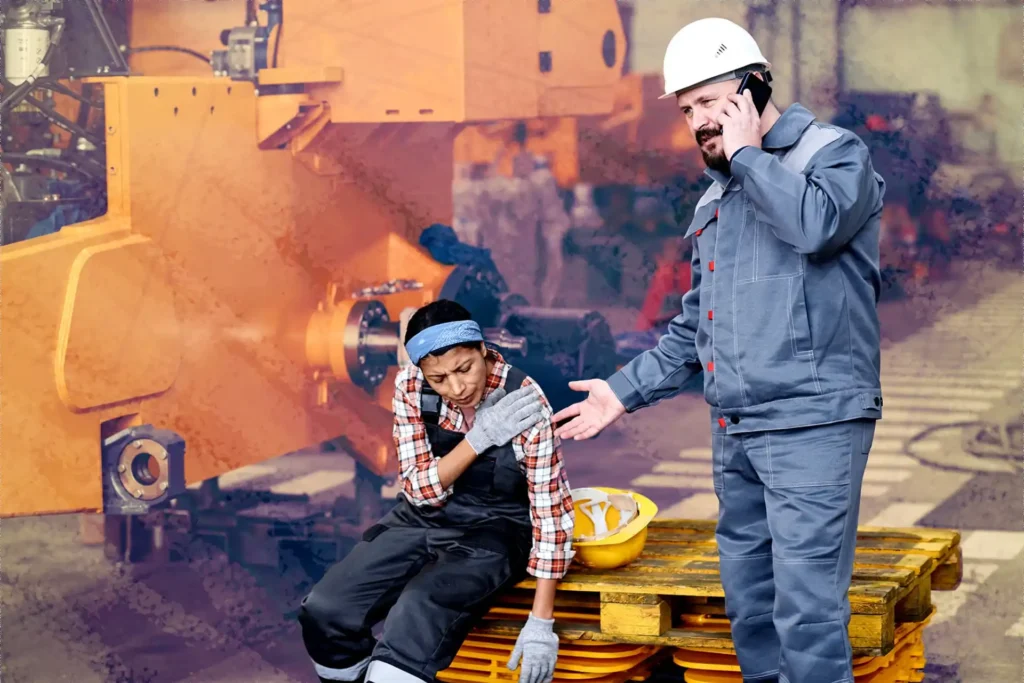Construction work can be highly rewarding, but it also carries significant risks. Workers on construction sites face hazards like falls, equipment malfunctions, and exposure to harmful substances, making accidents an unfortunate part of the job. If you or someone you know has been injured on a construction site, understanding how workers’ compensation works is crucial to ensuring you receive the benefits you deserve.
In this blog post, we’ll break down what workers’ compensation is, how it applies to construction accidents, and how a construction accident lawyer can help you navigate the complex claims process.
What is Workers’ Compensation?
Workers’ compensation is a type of insurance that provides financial support and medical benefits to employees who suffer injuries or illnesses in the workplace. It is designed to help workers cover medical expenses, lost wages, and rehabilitation costs, without having to file a lawsuit against their employer. In exchange, workers give up their right to sue the employer for negligence, which is a concept known as the “exclusive remedy.”
Workers’ Compensation for Construction Workers
Construction workers are particularly vulnerable to accidents due to the physically demanding nature of their job and the dangerous environment of construction sites. Common construction accidents include falls from heights, being struck by equipment or materials, electrical injuries, and repetitive stress injuries. If a worker is injured on the job, they may be eligible for workers’ compensation benefits.
However, the eligibility and compensation process can vary depending on the severity of the injury and the specifics of the job site. Let’s explore how workers’ compensation works for construction accidents.
How Workers’ Compensation Works for Construction Accidents
-
Reporting the Injury: The first step in a workers’ compensation claim is reporting the injury to your employer. In most states, you are required to notify your employer as soon as possible—usually within 30 days of the accident. Failing to report the injury in time may affect your eligibility for benefits.
-
Medical Treatment: Once your injury is reported, your employer will typically direct you to a healthcare provider for treatment. Some states allow employees to choose their doctor, while others have a list of approved medical providers. Workers’ compensation covers the cost of necessary medical treatment, including hospital visits, surgery, medication, and physical therapy.
-
Temporary Disability Benefits: If your injury prevents you from working, you may be eligible for temporary disability benefits. These benefits help replace a portion of the wages you lost while recovering. The amount of benefits you receive depends on your state’s workers’ compensation laws, but typically, you will receive a percentage of your average weekly wages.
-
Permanent Disability Benefits: In the event of a severe injury that results in permanent disability, workers’ compensation provides permanent disability benefits. These benefits are intended to compensate workers for long-term impairments that affect their ability to work and perform daily activities. The severity of the disability will determine the amount of compensation.
-
Vocational Rehabilitation: If your injury prevents you from returning to your previous job, workers’ compensation may cover vocational rehabilitation. This can include job retraining, resume building, and placement assistance to help you find new employment.
-
Death Benefits: In tragic cases where a worker dies as a result of a construction accident, workers’ compensation provides death benefits to the deceased worker’s dependents. This can include compensation for funeral expenses, lost wages, and support for surviving family members.
When Can You File a Lawsuit in a Construction Accident?
While workers’ compensation typically prevents you from suing your employer directly, there are exceptions. If a third party (someone other than your employer) is responsible for your injury—such as a subcontractor, equipment manufacturer, or property owner—you may be able to file a lawsuit against them in addition to your workers’ compensation claim.
In these cases, a construction accident lawyer can help you pursue additional compensation for pain and suffering, emotional distress, and other damages that workers’ compensation may not cover.
Why You Need a Construction Accident Lawyer
Navigating the workers’ compensation system can be complicated, and construction accidents often involve multiple parties and intricate legal issues. A construction accident lawyer has the expertise to:
- Help you file your workers’ compensation claim properly and on time.
- Ensure you receive fair compensation for your medical expenses, lost wages, and long-term disability.
- Investigate whether a third party is liable for your injury and help you pursue additional compensation.
- Represent you in case your workers’ compensation claim is denied or contested.
Having an experienced lawyer on your side ensures that you understand your rights and options throughout the process and that you receive the full compensation you deserve.
Conclusion
Workers’ compensation is a vital safety net for construction workers who are injured on the job. However, the process can be complex, and navigating it on your own can be overwhelming. If you’ve been injured in a construction accident, it’s essential to understand your rights and seek the help of a skilled construction accident lawyer to guide you through the claims process.

